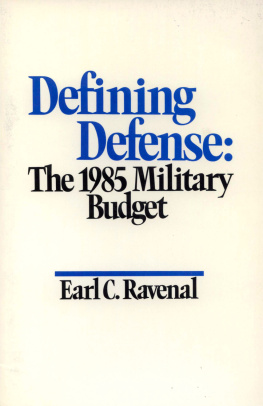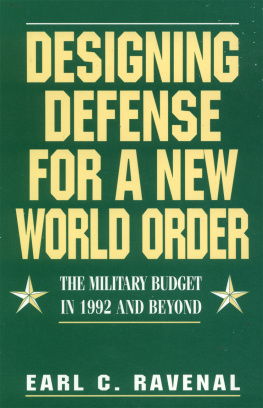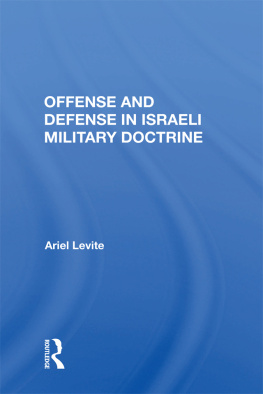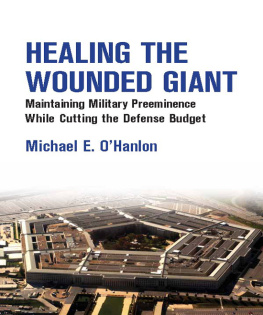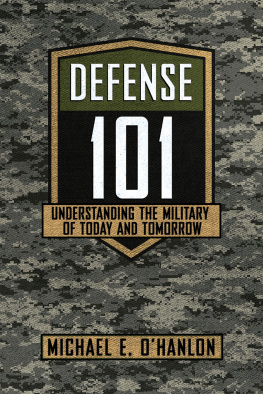The Dimensions of the Problem
The salient feature of the first four federal budgets of the Reagan administration has been the vast increase in defense spending. In terms of budget authorityall the funds that are authorized to be spent, though not necessarily in the same yearthis administration increased defense spending from 1981 to 1982 by 20 percent, to $211 billion; and from 1982 to 1983 by another 14 percent, to $240 billion. For 1984, Congress granted the administration another 8 percent rise, to $258 billion. And for 1985, the administration is requesting another 18 percent, to $305 billion.
These figures can be put in stark relief against present and projected total budget deficits. The administration's official figures are: for 1982, $110.7 billion; for 1983, $195 billion; for 1984, $184 billion; and for 1985, $180.4 billion. Privately, David Stockman, Director of the Office of Management and Budget, foresees a deficit for 1985 of more than $200 billion, if certain anticipated spending cuts and tax increases are not approved. Some economists have forecast even steeper deficits to follow. For example, Rudolph G. Penner, Director of the Congressional Budget Office, expects federal budget shortfalls rising to $280 billion in 1989; and Michael K. Evans forecasts $330 billion by 1988.
Actually, the precision of these figuresor their stability over weeks and months of forecastingis not the point. The point is their order of magnitude and the kind of problems they represent. For the predicament in which America finds itself is not a thing of one or two awkward or painful budgetary seasons. It is a dilemma of historic magnitude and import: nothing less than the situation of a mature "imperial" power, beset by multiple political and military challenges in the world but unable to generate sufficient resources for the defense of its extensive global perimeter. The term "imperial" is neutral and generic, not pejorative. Empires, throughout history, have performed certain functions. They fulfill them or they falter and fail. Or their societies and leaders may appraise their situations and adjust their foreign policies to fit their capabilities and their true needs and values.
The defense budget must be seen in the context of the larger economic choices. In other words, we must examine what it even means for a nationnot an individual person but a complex social-economic-political systemto "choose" a foreign or military policy. It cannot be an act of pure willfulness. Foreign and, derivatively, military policy are compressed between requirements that arise from our position in the international system (such things as "threats" and "challenges") and the constraints that arise from our domestic system (constraints on resources and support). Requirements can be thought of as demands. Resources and support can be considered as supply factors. It is characteristic of foreign policy bureaucrats, and their chorus among the "foreign policy community," to devote preemptive attention to factors on the demand side, without reference to the other side of the equation. Obviously, a foreign policy that is lopsidedly responsive to threats and challenges, and that incurs such pressures through its multiplication of foreign commitments and its assumption of foreign interests, will experience more of the domestic constraints that are latent in any social and economic system.
When we consider these contraints of resources and support, we see that a certain "model" is presented, within which any government must operate. Faced with large deficits, an administration (such as the Reagan administration now) finds its choices limited to five:
1. It could seek to make up the deficits by ordering more taxes. But this would betray crucial promises it made to important constituencies.
2. It could reduce the deficits by making further cuts in domestic programs. But this attempt, commendable to the extent that it has been pursued by the Reagan administration, has run into the area of diminishing budgetary returns for political effort expended.
3. It could try to finance the deficits by borrowing from the banking systemin effect, printing money (as the Federal Reserve System did on a large scale from the late summer of 1982 at least to the spring of 1983). But this behavior, if resumed, would rekindle the fires of inflation.
4. It could borrow in the ordinary credit markets. And so the Reagan administration has done to a large extent. But this has the effect of raising interest rates and crowding out industrial recovery and renewal. Up to now, the latter effect has been mitigated by a massive influx of foreign capital, attracted by the high interest rates themselves; but that factor can shift rapidly.
5. Or, of course, the administration could cut its defense program.
These choices can be made, and they can be mixed, but they cannot be evaded or transcended. It is only in terms of these implicit choices that the questioncan the country afford its foreign policy?can be answered.
Let us concentrate on the case for higher taxes. Most arguments for the "affordability" of high defense spending are implicit arguments for more taxation. Couldn't the nation "decide" to assume the burden of substantially increased taxes (and perhaps also that moral equivalent of taxation, conscription)? One article puts the matter thus: "Under John Kennedy in 1961, this country spent 9 percent of its gross national producthalf the federal budgeton defense. Today we allocate only a bit more than 6 percent of GNP, a quarter of the federal budget, to defense.... What has changed in this country over two decades is the addition of so many other costly activities and income-redistribution programs..." This may be historically true, but we are situated in a web of economic and political factors, and our choices are where we find them now, not where they might have been two decades ago. The fact that domestic social welfare expenditures have overtakenand putatively preempteddefense expenditures does not mitigate the situation; it certainly doesn't make defense more affordable. Quite the contrary, it makes it even less affordable. If anything, it argues for reducing both social welfare spending and defense spending. It simply means that our fiscal sins of the past era are finally catching up with us.
But why not, then, more taxes? It is often said that the United States, in the global scheme, is one of the most undertaxed nations. Compari sons are of this order (in terms of tax revenues as a percentage of gross domestic product): Sweden 51 percent, the Netherlands 46 percent, France 43 percent, Germany 37 percent, the United Kingdom 37 percent, the United States 31 percent, and Japan 27 percent.



